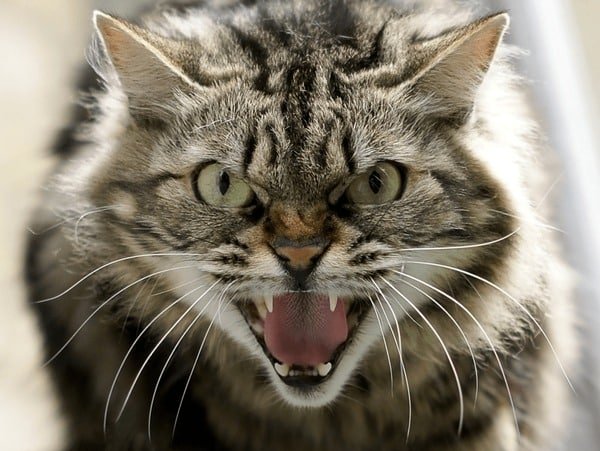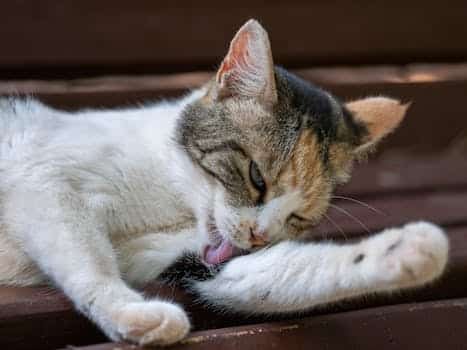Post Disclaimer
Catopedea shares information for educational and general interest purposes only. Our content is not a substitute for professional veterinary advice, diagnosis, or treatment. Always consult a licensed veterinarian for concerns about your cat’s health, diet, or behavior.
Cats are known for their mysterious behavior, but sometimes their actions can be downright alarming like growling out of the blue. If you’ve ever asked yourself, “Why is my cat growling all of a sudden?”, you’re not alone. Many pet owners are caught off guard when their once-calm companion suddenly shows signs of aggression.
Growling in cats is more than just a noise; it’s a form of communication. It may signal discomfort, fear, illness, or even a reaction to something you can’t see. Understanding the cause is the first step to addressing it. In this article, we’ll explore the possible reasons behind sudden growling, what it means if your cat is aggressive out of nowhere, and when to be concerned.
What Does Growling in Cats Mean?
Before diving into specific causes, it’s important to know what growling actually communicates. Unlike purring, which is generally positive, growling is a warning signal. Cats use it to say:
- “Stay away.”
- “I don’t feel safe.”
- “Something hurts.”
- “You’re crossing a boundary.”
It’s a natural defense mechanism and should not be ignored.
Why Is My Cat Growling All of a Sudden? 8 Common Causes

1. Fear or Stress
Cats are creatures of habit, and sudden changes like moving furniture, loud noises, or new people in the home can make them anxious. Growling is their way of coping with stress.
Example: A cat may growl if you bring home a new pet, as they feel their territory is being invaded.
2. Territorial Behavior
Cats are territorial animals. If your cat notices another cat through the window or smells an unfamiliar scent, they might growl to assert dominance, even if the “intruder” isn’t physically present.
3. Pain or Medical Issues
Sometimes, a cat growling out of nowhere isn’t about behavior it’s about health. Cats instinctively hide pain, but growling may slip out when they’re touched in a sore spot or when moving hurts.
Possible medical issues include:
- Arthritis
- Dental pain
- Urinary tract infections
- Injuries
If growling is persistent and paired with lethargy, limping, or loss of appetite, a vet visit is necessary.
4. Protective Instincts
Your cat may growl if they feel the need to protect something, such as food, toys, or kittens. This type of growling is defensive and linked to their natural instincts.
5. Overstimulation During Play or Petting
Sometimes, cats reach a threshold where they’ve had enough touch or play. If you pet them for too long, they might suddenly growl or swat as a signal to stop.
6. Redirected Aggression
This happens when a cat is upset by something they can’t directly confront (like a bird outside) and then redirects their frustration onto you or another pet.
7. Age-Related Changes
Senior cats may develop cognitive issues that make them more irritable or confused, leading to unexpected growling.
8. “Nothing” Isn’t Really Nothing
If you’re wondering, “Why is my cat growling at nothing?”, remember that cats have sharper senses than humans. They may hear a noise, smell another animal, or sense something imperceptible to us.
My Cat Is Aggressive Out of Nowhere – What Should I Do?
Aggression can feel scary, especially if your cat lashes out without warning. Here are some tips to handle sudden aggression safely:
- Stay Calm – Don’t yell or punish your cat; it will worsen their fear.
- Give Space – Step away and let your cat cool down.
- Identify Triggers – Was it another animal, a sound, or touch?
- Check Health – Schedule a vet check-up to rule out pain or illness.
- Provide Enrichment – Cats with pent-up energy may growl and act out. Offer toys and playtime.
Preventing Growling and Aggression in Cats
While you can’t prevent every growl, you can create an environment that reduces stress and aggression:
- Keep routines consistent.
- Offer hiding spots and elevated perches.
- Play with your cat daily to burn off energy.
- Use pheromone diffusers (like Feliway) to create a calming atmosphere.
When to See a Vet
If growling is sudden, frequent, or paired with other symptoms (like limping, hiding, or changes in eating habits), contact your veterinarian. Behavioral changes can be the first sign of illness.
FAQs
1. Why is my cat growling all of a sudden?
This usually indicates fear, pain, or stress. It may also be a territorial response or a reaction to overstimulation.
2. My cat is aggressive out of nowhere should I be worried?
Yes. Sudden aggression can point to pain or illness. If it persists, consult your vet.
3. Why is my cat growling at nothing?
Cats have heightened senses. They may detect noises, smells, or movements you can’t perceive.
4. Can growling mean my cat is sick?
Yes. Painful conditions like arthritis, dental problems, or infections can cause growling. Always rule out health issues first.
5. How can I calm my growling cat?
Give them space, avoid sudden movements, and create a stress-free environment. Calming aids like pheromone diffusers may also help.
Conclusion
Hearing your cat growl all of a sudden can be unsettling, but it’s important to remember that growling is a form of communication. Whether it’s fear, pain, or a territorial instinct, your cat is trying to tell you something. By paying attention to the triggers, providing a safe environment, and seeking veterinary advice when needed, you can help your cat feel secure and reduce sudden aggression.
The next time you hear that low rumble, pause before reacting it may be your cat’s way of asking for help or space. If your male cat is too rough with a female cat, here’s a dedicated guide.


